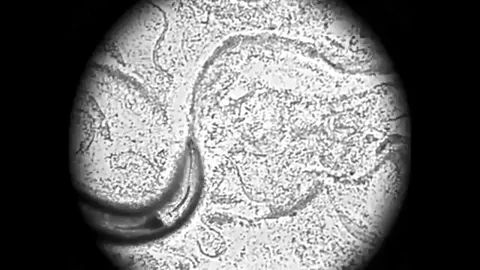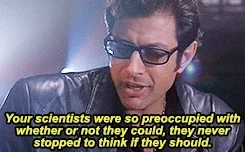Archaeologist friend of mine doesn’t wash her hands much. Goes from dirt-digging to eating a sandwich to typing on a computer. She doesn’t get sick often, and has no allergies.
My grandma said “you need to eat 2 teaspoons of dirt every day go stay healthy.” The hygiene hypothesis would support that. Parasitologists would not.

While more work needs to be done, Franklin says the approach could be used in the manufacturing of other electronic components like the screens and displays that are now ubiquitous to society. Every electronic display has a backplane of thin-film transistors similar to what is demonstrated in the paper. The current fabrication technology is high-energy and relies on hazardous chemicals as well as toxic gasses. The entire industry has been flagged for immediate attention by the US Environmental Protection Agency.
“The performance of our thin-film transistors doesn’t match the best currently being manufactured, but they’re competitive enough to show the research community that we should all be doing more work to make these processes more environmentally friendly,” Franklin said.
Fingers crossed!
Wonder why this caught my eye?

That article had some choice bits of eye-rolling pop-sci filler nonsense. I went to the Nature publication and found this fun illustration:
https://www.nature.com/articles/s41586-023-05964-2/figures/4
The “action/body network” sections being the relevant part of the findings.
Future experiments with stoned C. elegans specimens could help scientists learn more about the endocannabinoid system and better target future medications to just the most relevant receptors, offering relief with fewer side effects.
And now it seems like the humble roundworm, C. elegans, also experiences the munchies when dosed with cannabinoids, according to a new paper published in the journal Current Biology. We suspect it’s not a coincidence that the paper was released on April 20.

A fun one for sure.
…
In case you missed it:
I’m not sure I understand all this quantum mumbo-jumbo, so if anyone who does would care to put it in some layman’s terms we can all grok, I’d be ever so grateful!
(Disclaimer: not a physicist, theoretical or otherwise.)
Looks to me like they’re looking for quantum behaviours (which are satisfactorily modelled at the subatomic level) in bodies that are large enough to be affected by gravity. Gravity doesn’t “exist” at the subatomic level, quantum effects don’t “exist” at the macroscopic level.
So probably another step towards the elusive unified field theory; in this case looking at whether there is some sort of border or flip point or gradual transition or whatever between “quantum effects are needed to model the object” and “quantum effects become irrelevant when modelling the object”, and at which mass of an object that might be.
Anyway, when I bend my mind around it this way it makes sense to me, for what it’s worth.
We can observe the particle/wave thing without fancy equipment
… or even simpler, just looking at a bright light through a piece of cloth
Makes sense! Thanks!

That’s photons = electromagnetic interaction.
Wheras quarks, hadrons, neutrons, protons etc = strong interaction.
Definitely not observable without fancy equipment.
The benefits and pitfalls of de-extinction:
![]() The further back they go in terms of the date extinction occurred, the more I think of this:
The further back they go in terms of the date extinction occurred, the more I think of this:

I’d rather that we focus on preventing ongoing extinctions. Though perhaps preserving some existing species where we can restore their habitats might be good.
The drug Qalsody (tofersen) is expected to help people with a very specific mutation, SOD1, which applies to only 2% of the ALS population.
Although this drug is for a subset of ALS patents, Quinn and others hope it can pave the way for treatments for patients with sporadic ALS, meaning it comes on suddenly rather than due to a genetic mutation.
A small step, but hope is seriously lacking for these patients. It’s a start.

